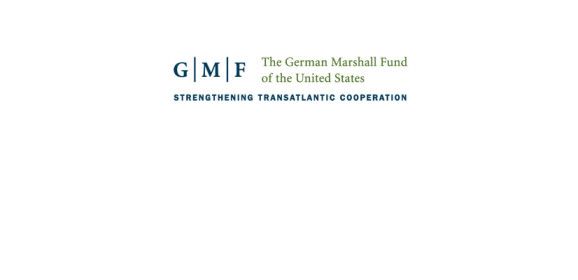Section: The German Marshall Fund of the United States (USA)
Rzeczpospolita Interview with Dr. Karen Donfried
On February 24, Dr. Karen Donfried gave an interview to the Polish newspaper Rzeczpospolita. The article explains why the U.S. might be concerned about the ongoing state of affairs within the EU. It touches upon a political atmosphere within Poland and the region prior to the NATO Summit in July 2016. Dr. Donfried clarifies the United...
The Winners from Russia-West Conflict
Transatlantic TakePhoto: REUTERS/Vasily Fedosenko WASHINGTON—On February 15, EU foreign ministers agreed to remove the sanctions first imposed in 2004 on Belarus’s President Alexander Lukashenko and other Belarusian officials and companies, following the temporary lifting of EU and U.S. sanctions last October. This is only a small part of a...
Russia’s Ragtag Eurasian Economic Union
Photo Credit On February 22, Kazakhstan announced the adoption of an “official program” to move the Kazakh language from the Cyrillic to the Latin alphabet by 2025. This seemingly domestic development is indicative of a broader regional trend: the ties between the members of the Eurasian Economic Union (EEU) are weakening. The EEU, Russia’s...
Belarus: Neither sticks, nor Carrots
In her column for Die Zeit Online, Rakhlei analyzes the decision of the European Union that abolished almost all its sanctions against Belarus. Minsk is ready for mend relations with the West as it seeks to balance its political and economic dependence on Russia. To explain this step, Brussels welcomed the constructive role Belarus played in...
EU Global Strategy
European leaders handed HR/VP Federica Mogherini an impossible mission last June when they asked her to come up with an EU Global Strategy on Foreign and Security Policy (EUGS). While Mogherini’s advisors prepare the EUGS, most of the threats predicted by Javier Solana’s 2003 security strategy are hitting the EU hard: terrorism,...
Technocrats Are Not the Answer to Ukraine’s Woes
Transatlantic TakePhoto: Evgeniy Maloletka, The Associated Press WASHINGTON—Just over a week ago, the dramatic resignation of Ukraine’s respected economy minister, Aivaras Abramovicius — and his accusation that the country’s leaders continue to tolerate corruption — led many Western analysts and officials to call for non-political...
Germany and the Eastern Partnership After the Ukraine Crisis
The conflict in and about Ukraine has catapulted the European Union’s Eastern Partnership (EaP) into the limelight of international attention. Belittled as a bureaucratic and technical policy instrument, the European Neighbourhood Policy and the EaP as its Eastern regional dimension have within the course of a few months gained unexpected...
Ukraine’s political suicide
Ukraine’s fledgling democracy edged closer to dismembering itself this week, as one of the most reform-minded members of the government stepped down. In his resignation letter, Economy Minister Aivaras Abromavičius accused old political elites of systematically blocking much-needed reforms and paralyzing the fight against rampant...
Russia’s Long War on Ukraine
Russia’s political leadership has pursued a consistent policy of pushing a reluctant Ukraine into evolving Moscow-led Eurasian economic integration projects, which are in fact geopolitical and aimed at establishing Russian strategic control over the post-Soviet area. Due to its size, potential, and historical closeness to Russia, Ukraine...
Germany’s Defense Budget Increase: Analytically Wrong but Politically Right
Transatlantic TakeBERLIN—This week, German Defense Minister Ursula von der Leyen announced that she wants to spend €130 billion ($140 billion) on defense equipment until 2030 — increasing the overall defense spending by €3-4 billion annually over the next 15 years. The bold announcement was actually the latest step in a longer-term plan by the...



